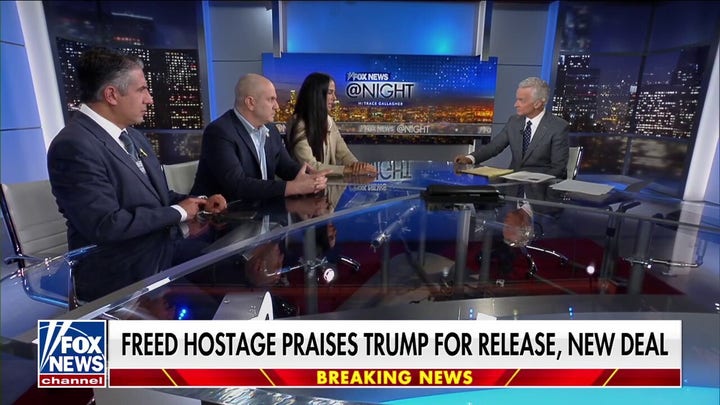U.S. Attorney General Pam Bondi said a ‘coward hiding behind a keyboard’ was arrested this week for allegedly sending a threatening letter to conservative influencer Benny Johnson in the wake of Charlie Kirk’s assassination.
George Isbell Jr., 69, was taken into custody on Tuesday in San Diego, California. He will be federally charged with mailing a threatening communication, according to Bondi. On his website, Johnson said he resides in Tampa, Florida, where the announcement of the arrest was made Friday.
‘Benny is a well-known media personality, carrying a message very similar to Charlie’s. Grounded largely in faith and love of country. Just days after Charlie’s assassination, Benny received a letter at his home where he and Kate are raising their beautiful, beautiful young family,’ Bondi said. ‘The author of this letter made it very clear that he hated Benny because of his views, and he wanted Benny dead.’
‘This was a coward hiding behind a keyboard who thought he could get away with this. That’s why we’re standing up here today. You are not going to get away with threatening people in this way. And I’m proud to announce that we have arrested the author of this letter,’ Bondi added.
She said earlier that, ‘we’ve been living through a horrific cycle of political violence in this country.’
‘We are going to catch you if you think you can do something like this,’ Bondi declared. ‘We don’t care if you’re across the country in California, we will find you. We will arrest you, we will extradite you, and we will bring you to justice. We cannot allow this political violence to continue any longer. This arrest will serve as a reminder to many — do not do this. We will find you.’
U.S. Attorney Gregory Kehoe for the Middle District of Florida told reporters Friday that Johnson ‘immediately contacted’ the Tampa Police Department after receiving the letter. The FBI and the Florida Department of Law Enforcement assisted in the investigation, while the U.S. Postal Service determined the letter originated from San Diego, California, Kehoe added.
Fingerprints that were obtained from the letter led investigators to Isbell, according to Kehoe.
‘According to the complaint, on or about Sept. 18, Isbell mailed a letter from San Diego threatening to injure his victim, a media personality located in Tampa, Florida, and telling his victim that the victim needed ‘to be exterminated,’’ the Justice Department said in a statement Friday.
‘In the letter, he referenced one of the victim’s friends, Mr. Charlie Kirk, a conservative political activist who had recently been killed during a public engagement on a college campus. After writing that he hoped that the American flag ‘strangles the life out of you,’ the letter went on to state: ‘Maybe someone will blow your head off!!! We can hope! Planning any public engagements? Love to see your head explode and your blood stain the concrete red. What a sight!’’ the Justice Department added.
If convicted, Isbell could face a maximum sentence of five years.
Johnson told Fox News Digital on Friday afternoon, ‘The major question here is, how many of us need to die? And, you know, until people take it seriously?’
Speaking alongside Bondi in Florida, Johnson said, ‘I don’t want political violence. I want peace in my nation.’
‘I love this country. I want to be able to debate like Charlie did. I want to be able to raise my family in peace. That is our birthright. But you cannot make peace with evil as a Christian. You cannot unite with people who want you dead. I want unity in this nation,’ he added.





